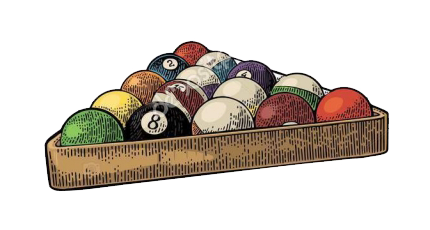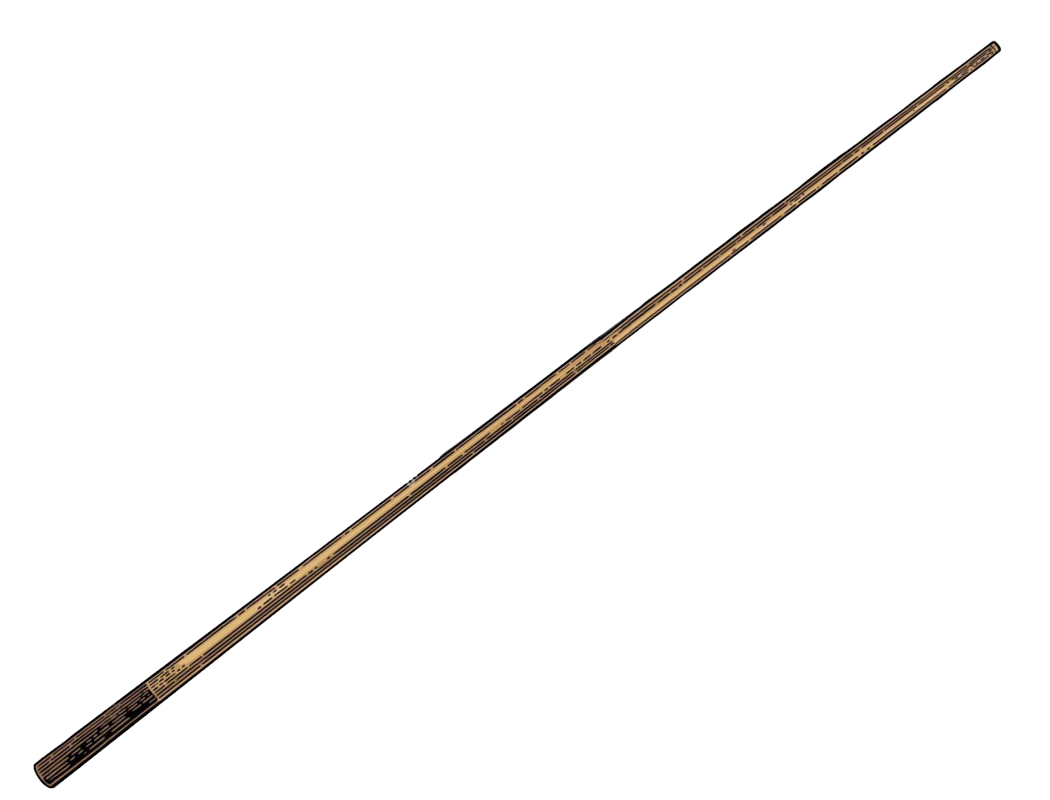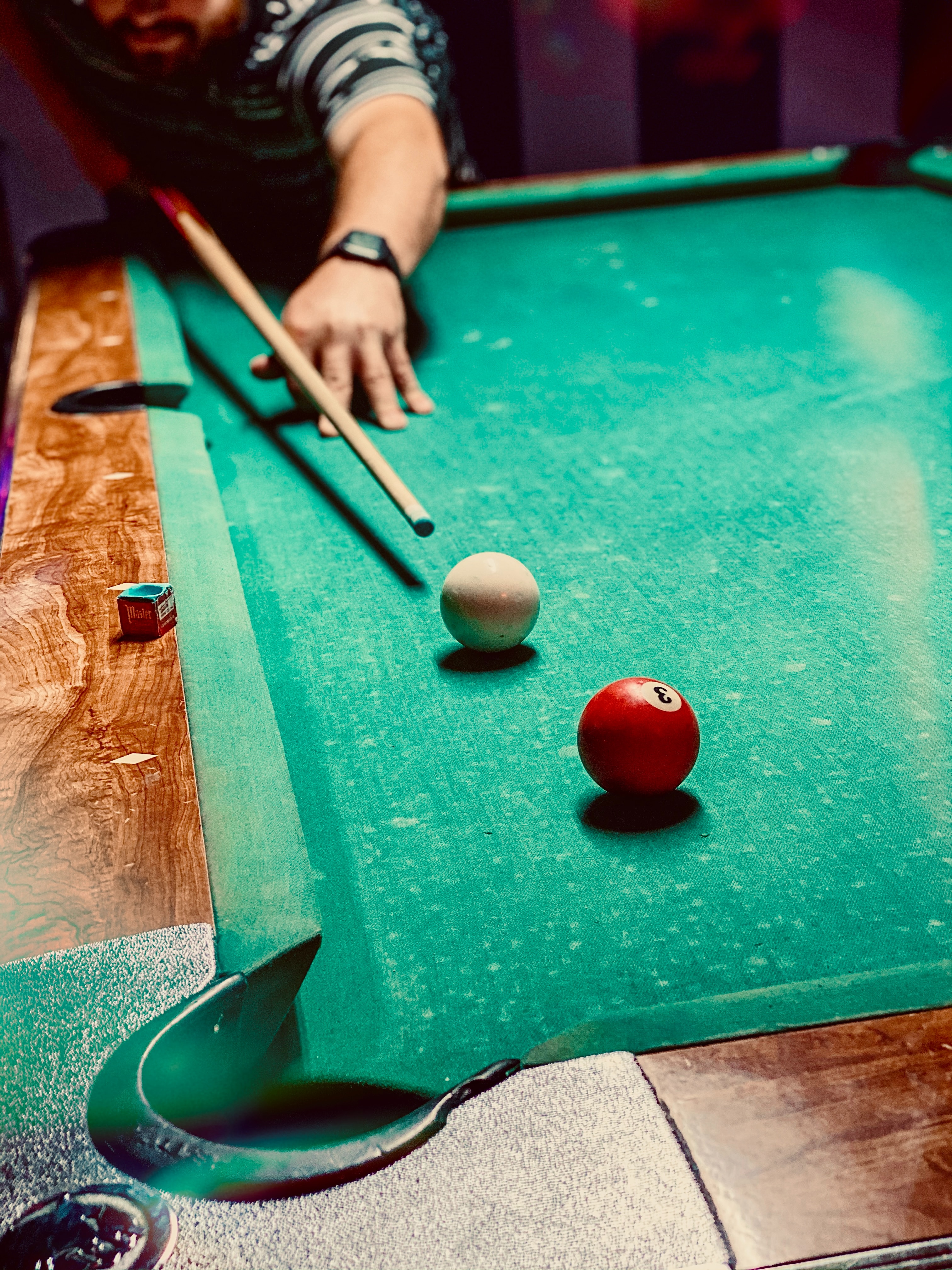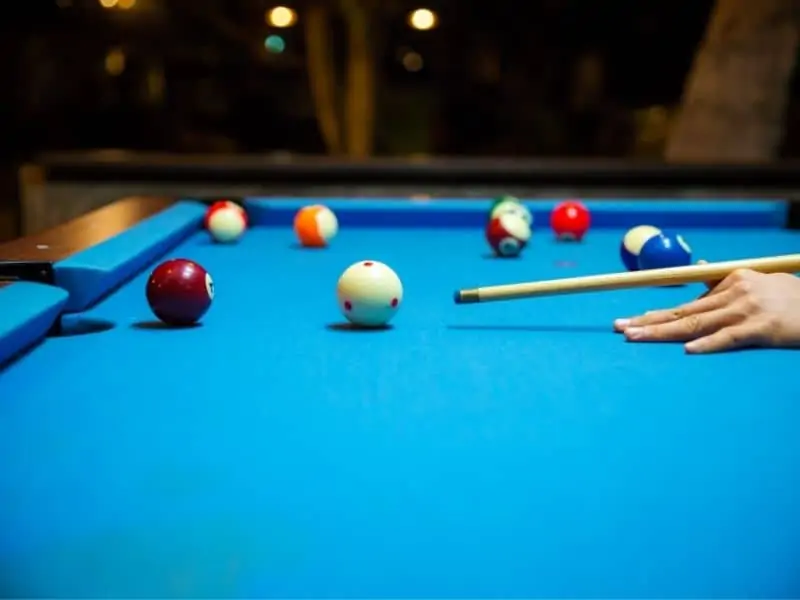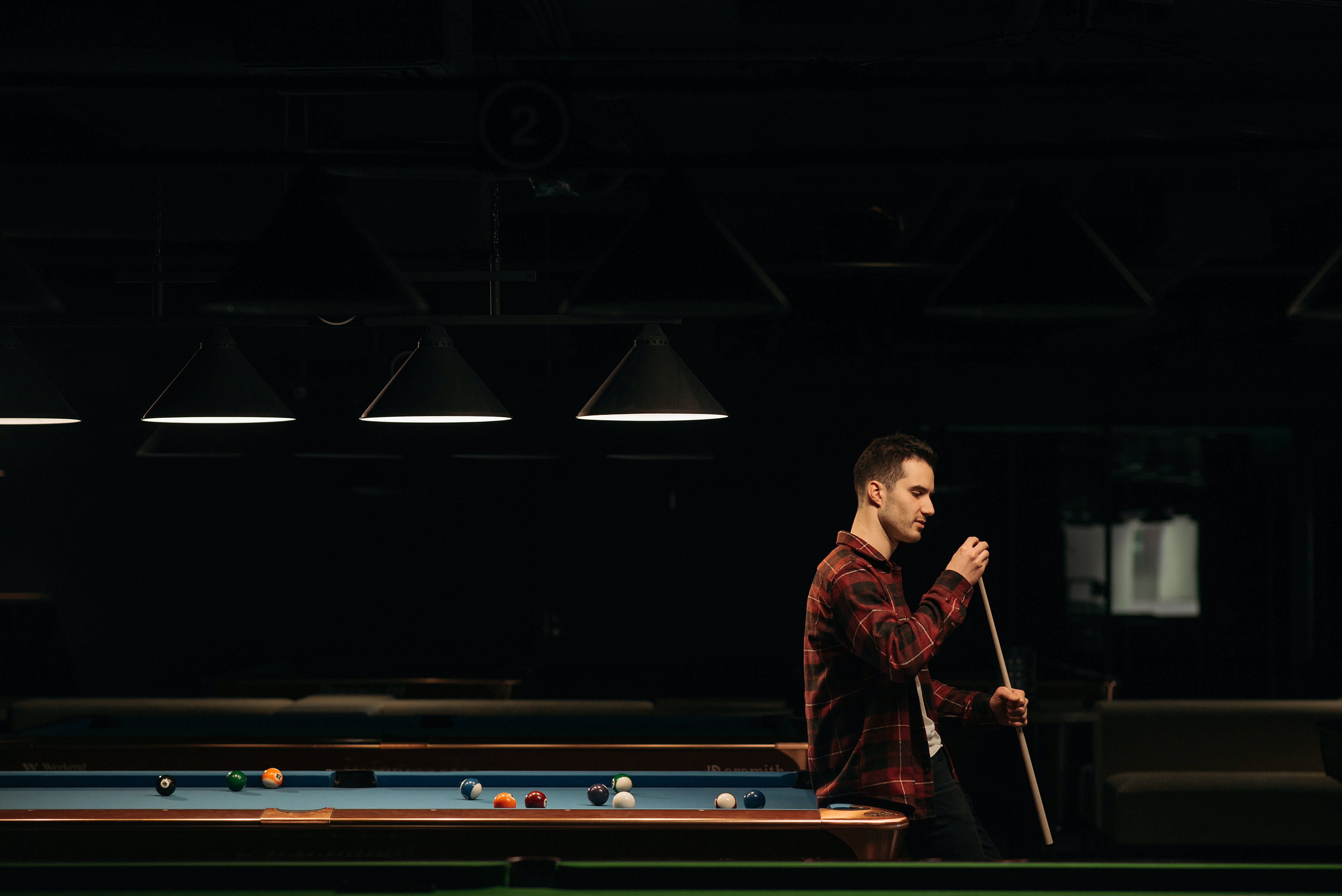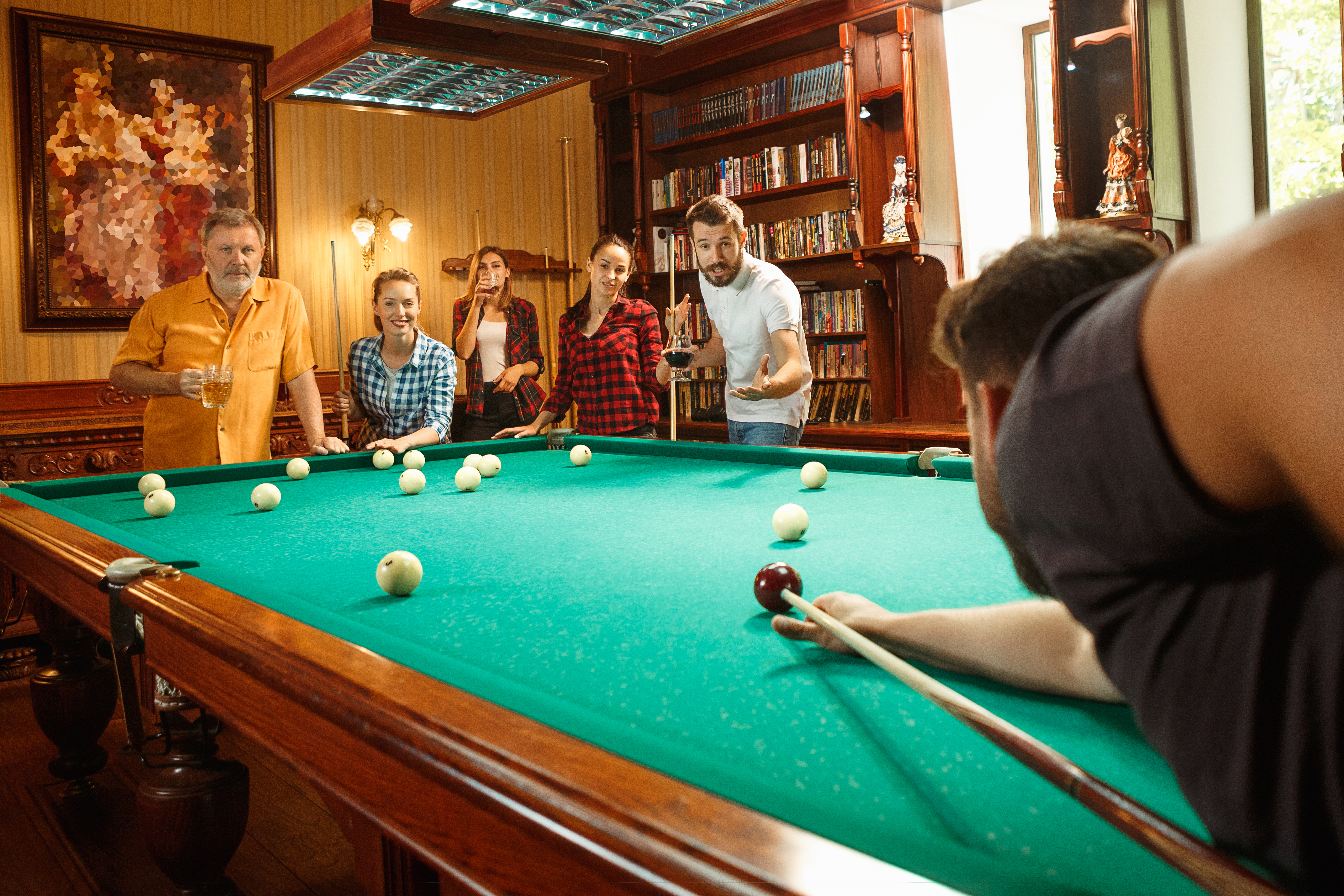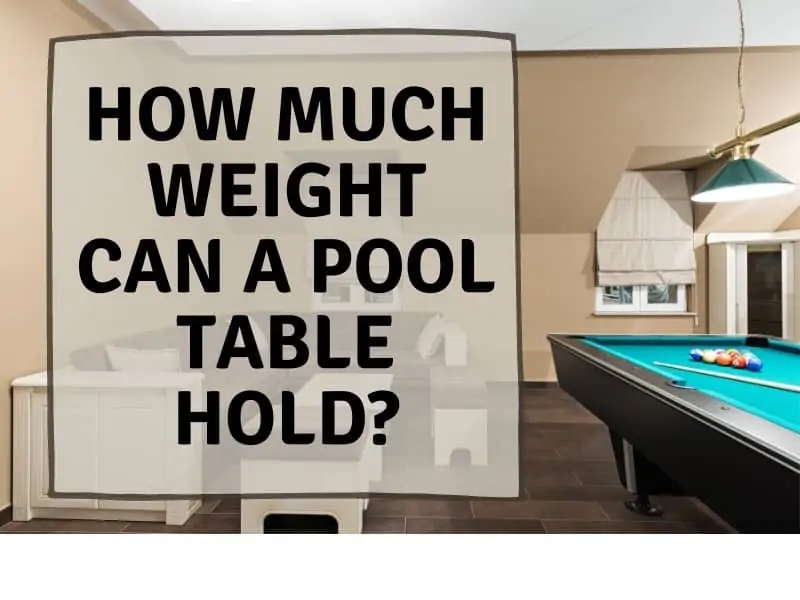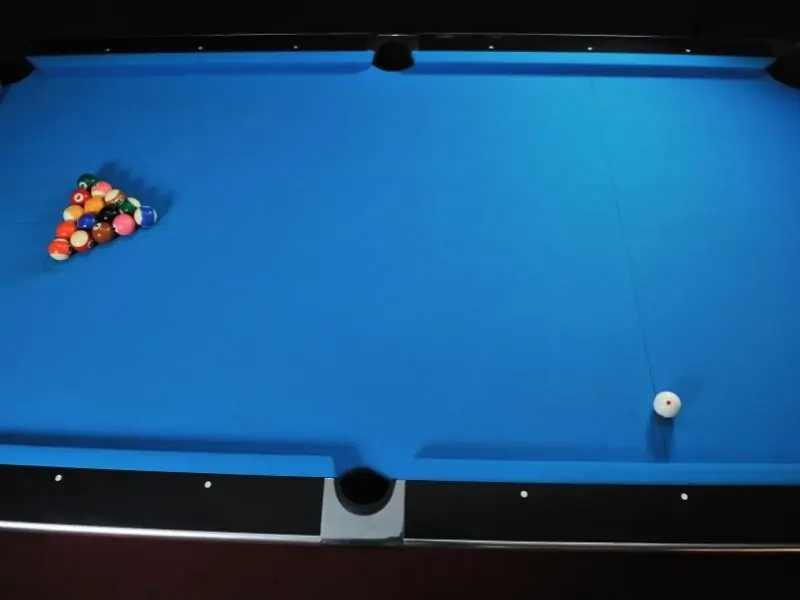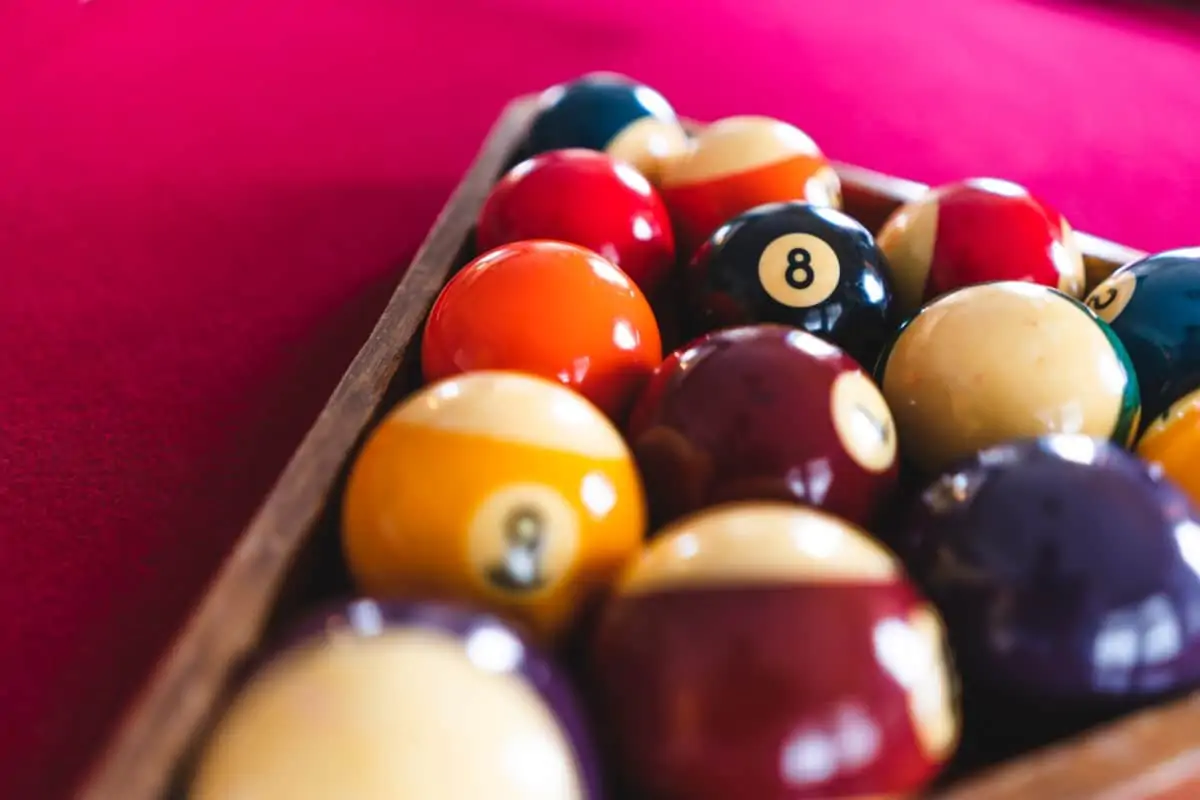Owning a pool table is a great way to keep your skills honed and entertain guests. However, maintenance is required and keeping your pool table clean and intact is important to protecting your investment.
Luckily cleaning and maintaining your pool table isn’t hard or expensive to do. If you have a few bucks to spare and about 15 minutes a week, you can keep your pool table clean with little effort. In this article were going to show you how clean a pool table step by step. Keep reading to learn how to do it!
Preventative Measures
The best way to keep your pool table clean is to minimize the potential for mess. Here are a few things you can do to reduce the amount of time you’ll have to spend cleaning your pool table.
No Drinking at the Table - It’s very common for pool-halls and bars to post “No Drinks on the Pool Table” signs in their billiards area. A spilled drink can create a pool table nightmare, damaging the felt – or worse – especially if not attended to properly and in a timely manner.
No Smoking at the Table - Smoking near a pool table creates many opportunities for mess or even severe damage to your pool table. Ash falling from a cigarette or pipe can keep your felt constantly covered in debris that can embed itself deep in the fibers and make matters gradually worse. More disconcerting than ash, embers can damage the felt with burns that will ruin the felt’s smooth surface and create opportunities for the hole to expand or lead into runs, further ruining the felt.
Use Chalk Away From the Table - Similarly, it’s important to minimize chalk dust reaching the table surface. Chalk is an important tool in billiards play used both on the tips of pool cues and to reduce friction on your bridge hand. Chalk dust can stain the felt and get deep down into the fibers as well, both of which affect billiard ball movement, while bringing you closer and closer to having to replace your felt. Be sure to chalk your cue and hands away from the table surface.
Keep the Table Covered - Keeping a cover on your table when it’s not in use is also a great way to protect your table from accumulating daily dust or damage from unexpected accidents. Don’t have a cover for your pool table? Check out this one on Amazon. It comes in 3 different sizes to fit 7ft, 8ft, and 9ft pool tables. Check it out if you need a quality cover at an affordable price.
No Sitting on the Pool Table - Minimizing the use of your table as a counter top or sitting area will extend its life as well. Particularly on an uncovered surface, this is a sure-fire way to transfer dirt and grime onto your felt. Even with a proper table covering, stored items can make indentions in your felt and affect its integrity.
Avoid Massee & Jump Shots - Massee and jump-shots should be avoided as well. These types of shots will drive chalk from the tip of a cue right into your felt and create nicks and tears.
Ways Not To Clean
A sudden mess, like a spilled drink, can cause a pool table owner to switch into crisis mode, with quick and sudden reactions that sometimes may do more harm than good. Imagine the frustration of tending to a situation with the life of your pool-table hanging in the balance, only to find you’ve caused further damage.
Proper vacuuming of the felt will be discussed in the following section, but you should NEVER use a full-size, carpet vacuum on your felt. This tool will tug at the felt and cause it to stretch and develop wrinkles. Wrinkles will obviously impede the functionality of the felt, but even without wrinkles, the stretching of the felt can cause inconsistencies in the texture by causing some parts to be thinner than others, severely affecting the billiard balls’ movement and making playing a relaxing game of pool a frustrating experience instead. Keep it tight; keep it right.
The heat from those types of vacuums can cause problems as well. For this reason, it’s also important not to dry a wet felt surface with a hairdryer or other heat-using tools. When heat is applied to a wet table surface, particularly, it can not only damage the felt but also the wood underneath. For this reason, it is also imperative that you do not iron your felt in response to wrinkles. This will only make things much worse.
Cleaning Your Pool Table
Cleaning the Felt
An important tool in maintaining your felt is a billiard table brush like this one. It may seem like an attractive idea to use a different brush you may have in your household, but a brush made specifically for billiards tables is critical because the bristles are the appropriate consistency and softness. Most household brushes, like those meant to scrub carpet or dishes, can damage the felt further and should be avoided for this purpose.
When using the brush, it’s important to move up-and-down in straight, consistent lines. Moving in circular or back-and-forth motions can damage the felt and make a dusty pool table seem like a minor concern compared to loosened or frayed felt. Moving the brush consistent with the weave of the felt is crucial. Also be careful not to over-brush; brushing should take a few minutes at the most.
While full-size vacuums are to certainly be avoided, small hand-vacuums are amazing tools for daily dusting maintenance. Once you’ve brushed the surface and loosened the dust from the fiber, use a small hand-vac to go over the surface, without dragging it along the felt. Try your best to keep the vacuum right above the felt and try to avoid much contact. Do not apply pressure to the felt; forcing embedded debris up through the felt can damage the felt over time. Keep the vacuum moving. Holding it over one area in an attempt to “get it all up” risks heat damage.
This Black & Decker Handheld Vacuum is perfect for pool tables. Its lightweight, has a rechargeable lithium ion battery, and has an extendable crevice tool which is perfect for getting hard to reach dirt and chalk dust from under the rails. It also comes with a 2 year warranty for peace of mind!
Spills
Even with the most careful of circumstances, pool tables are always under threat from beverage spills. As with most messes, a timely response will substantially reduce potential damage; liquid can soak through the felt and soak into the wood below.
When tending to a spill, be sure to use a dry rag to blot the spilled area rather than scrubbing it. Because of the importance of the directional weave of the felt, scrubbing a spill can permanently damage the felt by causing the felt to shift or pucker, making full replacement inevitable. After you have absorbed most of the liquid, use a microfiber towel lightly dampened with cold water to blot the stain and another dry microfiber towel to absorb the remaining liquid.
Stains
While timely response is best, we do not live in a perfect world and sometimes spills can occur without our knowledge, leaving stains. Stains should be treated with the same care ass pills, blotting, not scrubbing, the target area.
Water may not be enough for certain stains, but it’s important not to use cleaning products. Many professionals have reported that using chemical product on the felt can affect its texture and consistency, altering the trajectory of the balls. Instead, it is recommended that you use a water-vinegar mixture (one cup of water, two tablespoons of vinegar).
Be sure to let the area air-dry after using a dry micro-fiber towel to absorb as much liquid as you can without scrubbing the area. Remember to avoid using light or heat based drying practices. Continue blotting the area with your vinegar and water mixture as many times as necessary to remove the stain. Tough stains may require several attempts but resorting to other methods risks permanently damage.
If the water and vinegar mixture doesn’t work, you can always purchase a felt cleaning product like the Game Room Guys Pool Table Felt Cleaner. This product is designed specifically for pool table felt. It helps gently remove stains and keep your felt in great condition. You simply spray it on and wipe it off with a clean cloth. Too simple, I know.
Cleaning the Rails
Dirt and grime can easily accumulate on the rails of your pool table as players lean or touch the railing. Sweat, dirty hands, or simply the naturally occurring oil on our skin can affect the integrity of the wooden rails of your table. Be sure to polish them regularly with a lemon-oil or citrus-based product. It is extremely important that you avoid silicon-based products, as they will deteriorate the finish.
Cleaning the Pockets
The best way to remove dust from the pockets is with the hose extension from a vacuum or a shop-vac. Dust and debris that have accumulated in the pockets can get on the billiard balls and transfer dirt and grime to the felt during game play.
Wiping the pockets down with a lightly dampened microfiber cloth is a great way to keep the pockets clean as well. If your table has leather pockets, it is recommended that you use an oil-based product bi-annually to keep them from hardening.
In Conclusion
You can extend the life of your table and avoid costly repairs by keeping your beautiful, expensive billiards table maintained and clean. Whether using your pool table for personal enjoyment or to entertain guests, a well-maintained pool table will improve your experience and allow the game to function without frustrating or annoying interruption. Long live your table!
Other Articles You May Be Interested In:
- Best Pool Cues for the Money: Discover the top pool cues that offer great value without breaking the bank.
- Pool Table in the Garage? Here’s What You Need to Know: Understand the essential considerations for setting up a pool table in your garage.
- Break Cue vs Playing Cue: What’s the Difference?: Learn the key differences between break cues and playing cues to enhance your game.
- How Much Does a Good Pool Cue Cost?: Explore the factors that determine the cost of a high-quality pool cue.
- Are Mini Pool Tables Worth It? A Complete Guide: Read our comprehensive guide on mini pool tables and decide if they’re the right fit for you.
